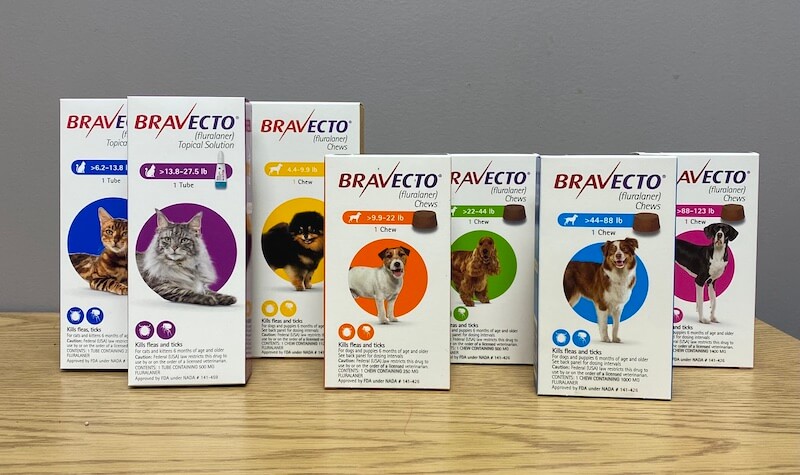Protecting Your Pet From Parasites
How does my dog get fleas and ticks?
If your dog goes outside, they are susceptible to fleas and ticks. This includes simply stepping foot outside, sitting on a balcony or patio, or even going out briefly. Fleas and ticks can latch onto your dog even with minimal exposure to the outdoors.
Can fleas and ticks spread from my dog to my home and my family?
Yes, fleas and ticks can definitely spread from your dog to your home and family. Fleas can jump onto humans, and ticks can also become transmitted to us, especially if your pet shares your bed or couch.
Is my indoor dog still susceptible to fleas and ticks?
Unfortunately, yes. Even primarily indoor pets are susceptible. Humans can inadvertently bring fleas and ticks into the home, serving as a route of transmission. Outdoor activities or contact with other animals can increase this risk.
What health problems can fleas and ticks cause for my dog?
Fleas and ticks can cause numerous health problems, including anemia and Lyme disease, which is particularly concerning in certain regions. They can also transmit other diseases like ehrlichia, anaplasmosis, and Rocky Mountain spotted fever.
How effective are flea and tick medications?
Flea and tick medications are very effective. Medications like Simparica Trio, Revolution Plus, and Bravecto have been thoroughly tested and are trusted as great prevention methods for both dogs and cats.
What difference is there between over-the-counter and prescription flea and tick medication?
Prescription medications like Simparica Trio, Bravecto, and Revolution Plus are recommended and trusted due to extensive research and testing. Over-the-counter options are less reliable, and it's advised to stick with veterinarian-recommended treatments.
What are the different types of flea and tick preventative treatments available?
There are many options, including oral medications like Simparica Trio and Bravecto for dogs, as well as topical treatments for cats. Collars, such as the Seresto collar, are also known to be effective.
What will my veterinarian recommend for flea and tick treatment?
Veterinarians may recommend Simparica Trio, a monthly chewable tablet that prevents against heartworm, fleas, ticks, and intestinal parasites. Revolution Plus and Bravecto are also commonly recommended treatments.
How can I identify fleas on my dog?
Look for flea dirt, which appears as tiny black specks, similar to pepper, on your dog's coat. If your dog is itching more than usual, it might indicate fleas, even if you don’t see flea dirt. A thorough check with a flea comb by a veterinarian is advisable.
How do I identify ticks on my dog?
Ticks can commonly be found on a dog's ears, chest, or belly. After hikes or visits to dog parks, perform a thorough check, especially on floppy-eared dogs. Ticks might also be found at the tail base of your dog.
What should I do if I see fleas or ticks on my dog?
Visit your veterinarian for proper removal and check-up. It's important to remove a tick entirely, including its mouth parts. For fleas, look for flea dirt and consult your veterinarian if itching persists. Regular check-ups and preventive measures are crucial.
Fleas and ticks are prevalent in the Cincinnati area. Not only are these parasites a source of irritation to your pet, but they can also harbor disease and adversely affect your pet’s health. In addition, heartworm is a dangerous parasite that lives in the heart of dogs and cats, damages the heart muscle, and can be fatal. Thankfully, all of these illnesses can be prevented, and Deer Park Veterinary Hospital can help you keep your pet safe.
Fleas are small, jumping insects that live off of the blood of animals. They can carry dangerous diseases and will often cause allergic dermatitis ”severe itching” in pets.
Ticks are external parasites that live off of the bodily fluids of animals. They can carry diseases from one animal to another and are the main cause of the spread of diseases such as Lyme disease, ehrlichiosis/anaplasmosis, and Rocky Mountain spotted fever.
Heartworm is a parasite that can live in the heart of dogs and cats. Mosquitoes carry the worm from one infected animal to another. Several hundred worms can live in the heart of a dog and infection from the parasite causes significant damage and can be fatal.
How We Can Help
DVPH follows the recommendations of the National Heartworm Symposium.
- For our geographic region, we recommend all puppies begin monthly heartworm medicine by 16 weeks of age.
- Heartworm medications need to be given year round.
- As an added protection, heartworm testing (a simple blood test) is advised annually, even with year-round prevention, at the time of routine vaccinations.
 It only takes one warm day to bring about fleas and ticks, thus DPVH advises giving year-round preventive care. Recommended products include:
It only takes one warm day to bring about fleas and ticks, thus DPVH advises giving year-round preventive care. Recommended products include:
- Simparica Trio is given to puppies and adults monthly
- Bravecto for mature cats and dogs, given every 12 weeks
- Revolution for cats and kittens, given monthly
- Interceptor for puppies and mature dogs, given monthly
 Proheart 12 for mature dogs, once a year injection for prevention of Heartworms
Proheart 12 for mature dogs, once a year injection for prevention of Heartworms
If you have any questions at all, we’re here to go through the entire process with you. Protecting your pet has never been simpler. You can call us directly at (513) 791-8550 , or you can email us at [email protected]. But please do reach out, and we'll get back to you as fast as we can. Don't forget to follow us on social media Facebook, Instagram.
